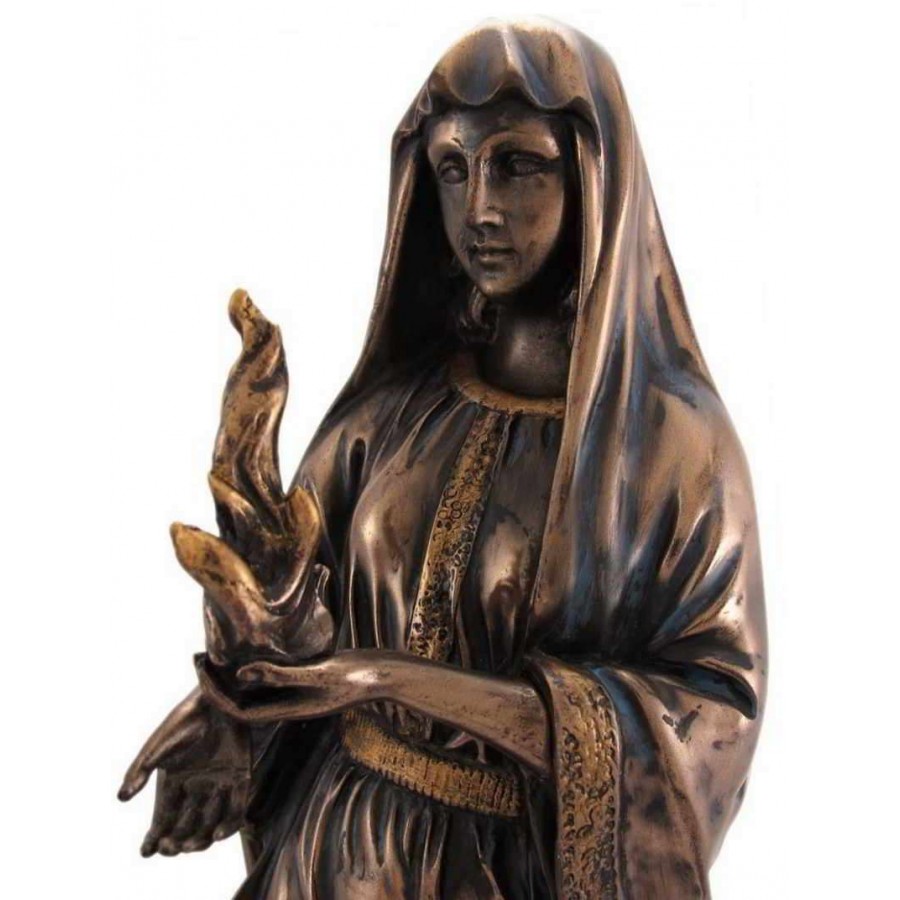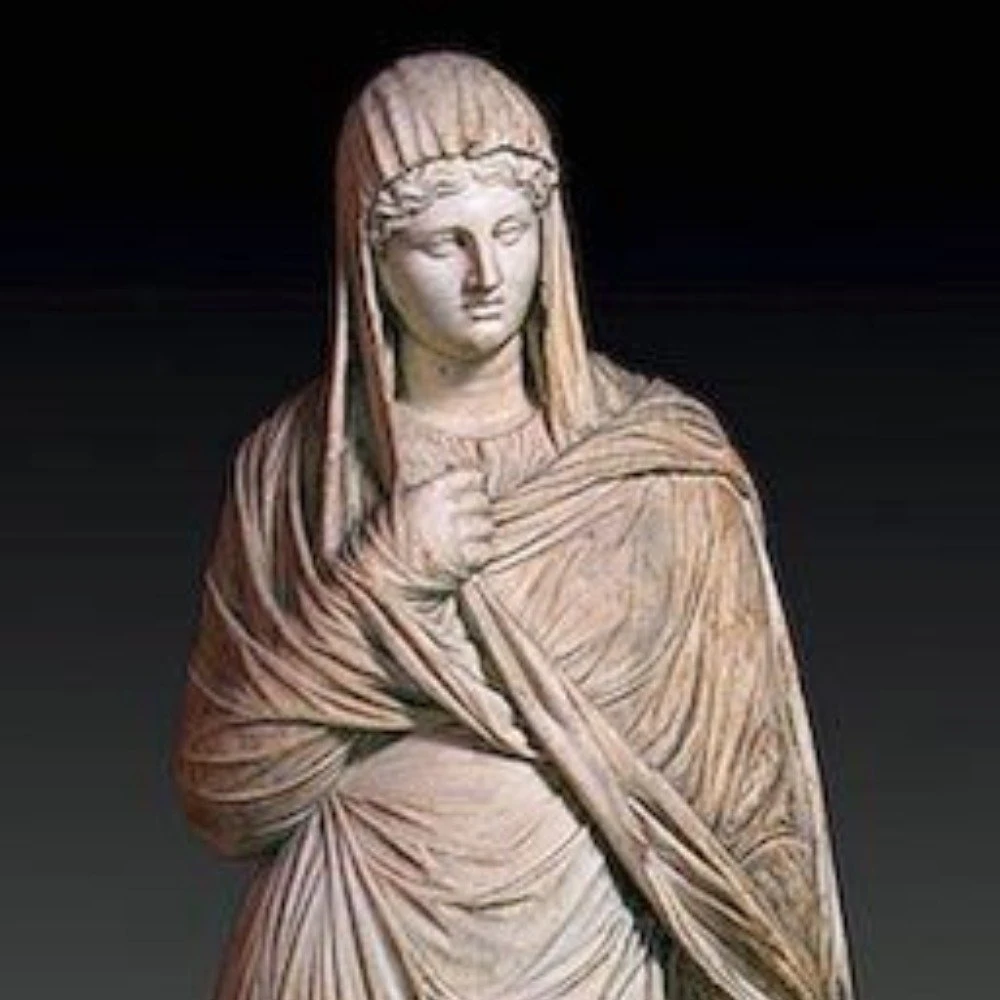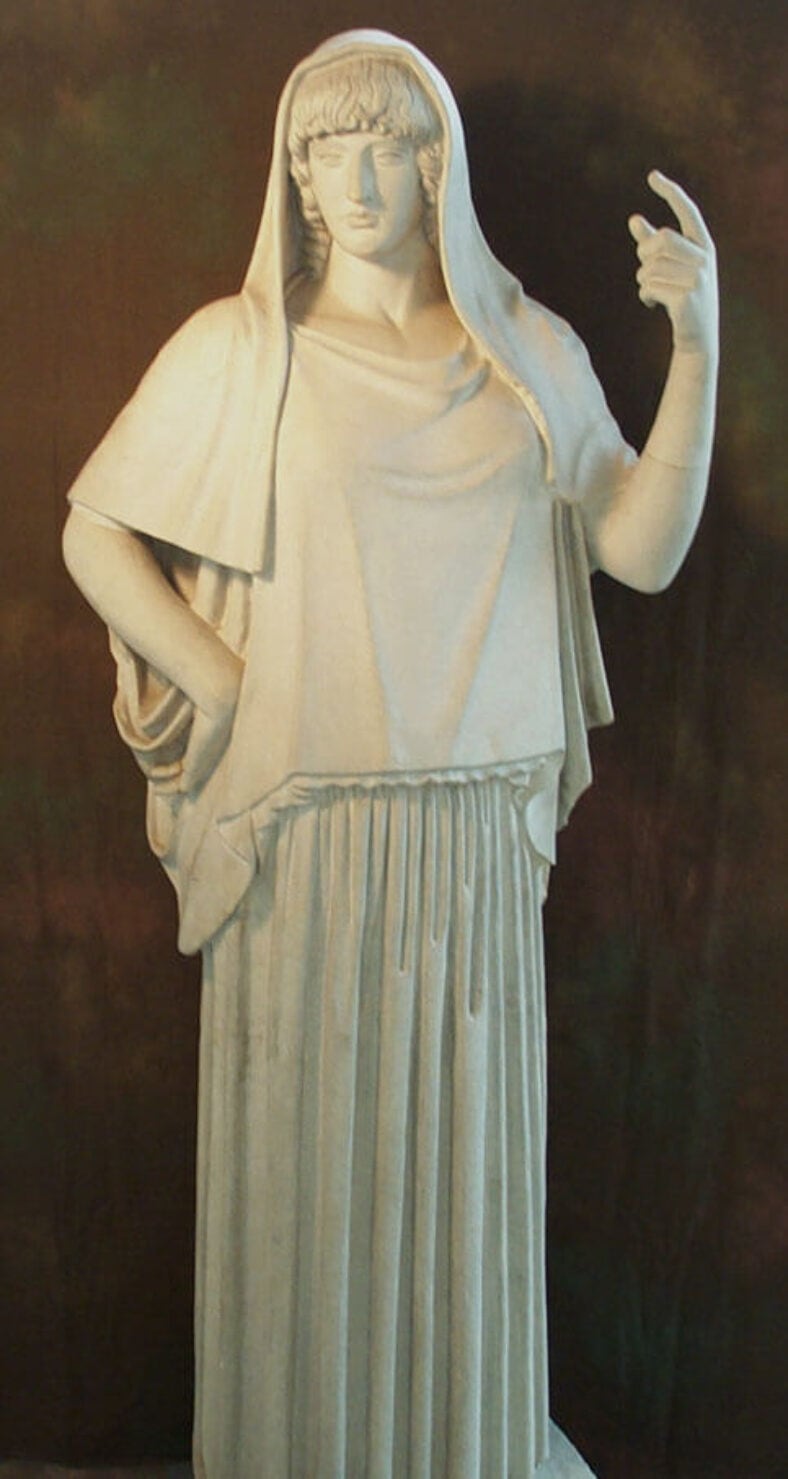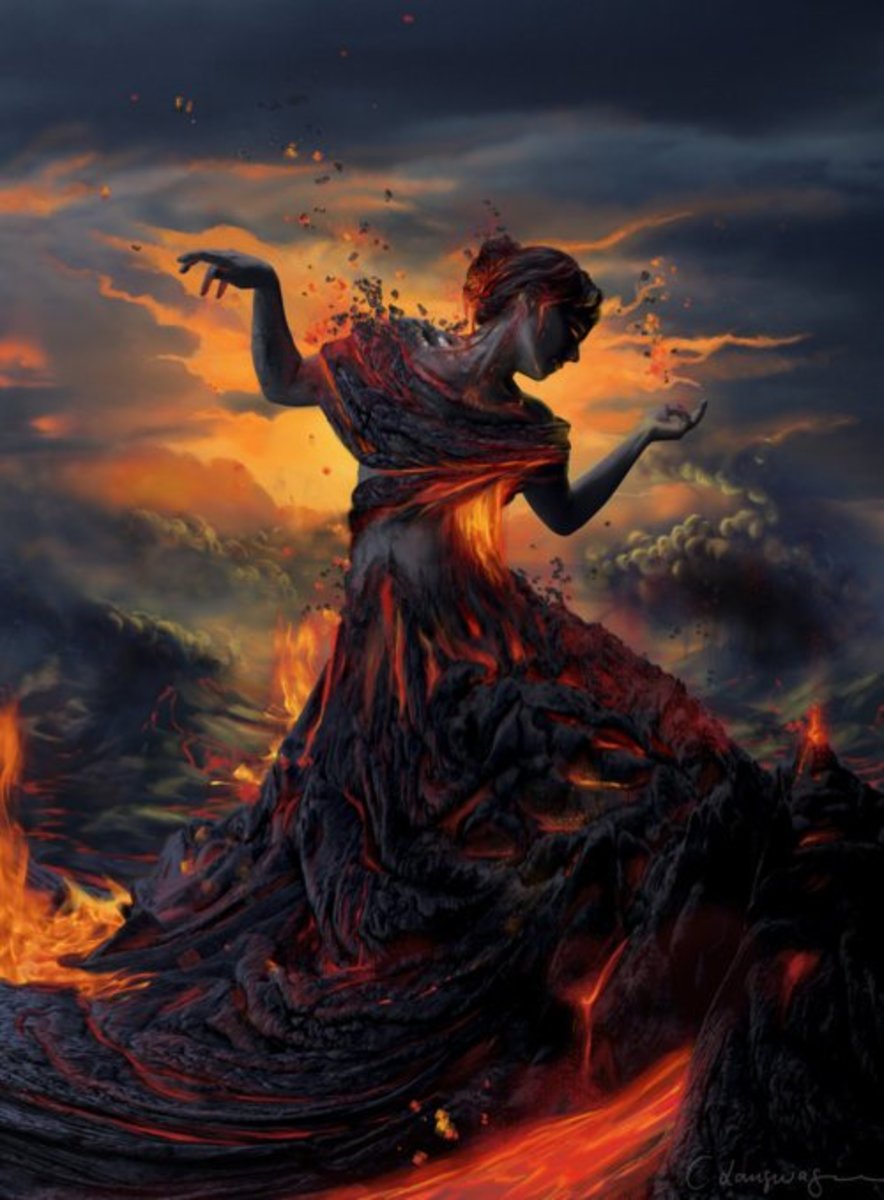Diosa Hestia Greek mythology art, Greek mythology gods, Greek gods and goddesses

Hestia Greek Goddess of the Hearth and Home Statue
British Museum. London. England. United Kingdom. RM G1DJP4 - Illustration depicting the interior court of a Greek house with a statue of the Goddess Hestia RM ERMAX4 - Vintage postage stamps with ancient greek gods Poseidon, Athena and Hestia. RM D96F62 - Statue of a seated woman about to rise. Greek. Possibly Hestia, Goddess of the hearth.

Hestia diosa griega Hestia diosa, Hestia diosa griega, Imagenes de brujas buenas
Greek Goddess: Hestia

Hestia by on DeviantArt Greek mythology goddesses, Goddess art
Browse 70+ hestia greek goddess stock photos and images available, or start a new search to explore more stock photos and images. Sort by: Most popular. Greek Gods Ancient Greek gods set: Artemis hunting with bow and arrow, Hades with the keys to the underworld and Hestia holding the sacred fire. hestia greek goddess stock illustrations.

Image 79668greekmythologyhestia.jpg Greek Mythology Wiki FANDOM powered by Wikia
Hestia is the uniquely sound-of-mind, passive, voice of reason in the popular pantheon of Greek mythology. She is the sole attendant to the celestial hearth of the gods, and is held with high esteem amongst both the undying gods and mankind, being known as "Chief of the Goddesses.". Although not a central figure of many famous myths, Hestia.
/Hestia_1500-57c727ba3df78c71b606b0da.jpg)
Hestia Who Is Hestia? Hestia, Greek Goddess of the Hearth
Hestia the Hearthkeeper. As the equivalent of the Roman Vesta, Hestia was known known to the ancient Greeks as the virginal daughter of Cronus and Rhea, and sister of Zeus, Poseidon and Hades. She tended the fires of Mount Olympus, and because of her devotion to her duty as hearthkeeper, she managed to stay out of a lot of the shenanigans of.

Hestia Greek goddess art, Greek mythology art, Greek and roman mythology
She is a goddess of the Olympian generation, daughter of Cronus and Rhea and sister to Zeus, Poseidon, Hades, Demeter and Hera. When Cronus swallowed his children for fear one would dethrone him, Hestia was the eldest and thus swallowed first.

El taller de Atenea LA DIOSA HESTIA
Hestia's name, derived from the ancient Greek word for "hearth" or "fireplace," is a testament to her role as the guardian of the home. In Roman mythology, she's known as Vesta, a name that resonates with the Latin word for "hearth.". Throughout the ages, she's been revered under various epithets, each highlighting a different.

Hestia, goddess of the Hearth and home. 1 of three virgin goddesses in the Olympian pantheon
Hestia was the goddess not just of the hearth of the gods on Olympus, but also for the hearths of private homes and the public hearth of towns and cities. In the homes of ancient Greece, the hearth could be a portable brazier and it symbolised the heart and soul of the household. Since Hestia was believed to preside over all of the hearths both.

Hestia The Greek Goddess of the Hearth Symbol Sage
In ancient Greek religion and mythology, Hestia ( / ˈhɛstiə, ˈhɛstʃə /; Greek: Ἑστία, meaning "hearth" or "fireside") is the virgin goddess of the hearth and the home. In myth, she is the firstborn child of the Titans Cronus and Rhea, and one of the Twelve Olympians. [1]

Ways of Worship Hestia Greek goddess, Ancient greece, Greek mythology
Updated 20 September, 2022 - 01:55 Khadija Tauseef Hestia: Greek Goddess of the Hearth and Home Read Later Print A woman stands next to a large flame, with a staff in one hand and tending to the fire with the other. This is Hestia, the Greek goddess of the hearth, home, and family. Her name literally means "hearth" or "fireplace."

8,378 Likes, 118 Comments ROY THE ART (roytheart_) on Instagram “ The Goddess of the Hearth
Hestia is the Greek goddess of the hearth, one of the original Twelve Olympians. Cronus ' and Rhea 's first-born child, she was pure and peaceful. However, since she always had to stay at home, tending the fireplace, Hestia is not involved in many myths. Consequently, at a later stage, she would be replaced in the Pantheon with the much.

Héstia Deusa Grega do Fogo e da Vida Doméstica
The Hearth in Greek Culture The goddess was the personification of the hearth and so she received sacrifices in all the temples of the gods as each one had its own hearth. By tradition, Hestia received any sacrifices before the other gods, even at such places as Olympia where Zeus was honoured.

Hestia Goddess of Meditative Wisdom in Mature Women Owlcation
Hestia Gràcia, arrios Gràcia, el Camp d'en Grassot i Gràcia Nova: fotos y 85 opiniones en Nicelocal.es. Datos de contacto.

Diosa Hestia Greek mythology art, Greek mythology gods, Greek gods and goddesses
Goddess Hestia has been portrayed as a shy, mostly sedentary woman who often appears to be wearing a veil. Tapestry and Paintings of Hestia The paintings are post-antique ( from 1710 to 1771), mostly created by famous European artists.

Hestia Ancient Goddesses, Greek Gods And Goddesses, Greek And Roman Mythology, Ancient Mythology
Hestia Gracia, centro inaugurado el año 2006, dispone de 153 camas en las que presta servicios de atención sociosanitaria en régimen de hospitalización. Sus instalaciones son confortables, luminosas y bien equipadas. Dirección: Calle Pau Alsina, 91-97, 08024 Barcelona Teléfono: 93 285 18 04

Hestia Greek mythology, Greek gods and goddesses, Goddess of the hearth
Hestia, in Greek religion, goddess of the hearth, daughter of Cronus and Rhea, and one of the 12 Olympian deities. When the gods Apollo and Poseidon became suitors for her hand she swore to remain a maiden forever, whereupon Zeus, the king of the gods, bestowed upon her the honor of presiding over all sacrifices.